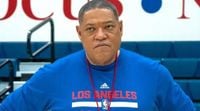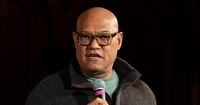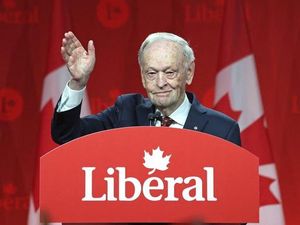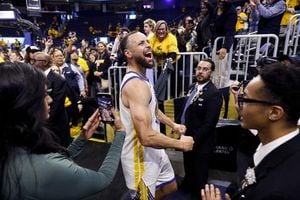Laurence Fishburne, the celebrated actor known for his roles in films such as The Matrix and John Wick, recently opened up about a challenging experience during the filming of the iconic 1979 movie Apocalypse Now. In a revealing segment of Apple TV+’s documentary Number One on the Call Sheet: Black Leading Men in Hollywood, Fishburne recounted how director Francis Ford Coppola expressed his disappointment regarding the young actor's lack of sexual experience, which became apparent during a particular scene.
At just 14 years old, Fishburne portrayed Tyrone ‘Mr. Clean’ Miller, a 17-year-old crewmember in the film. The actor shared that he was tasked with performing a scene that involved discussions about sex, a topic he had no personal experience with at the time. "There’s a scene in Apocalypse Now that got cut from the original film, and then it’s been put back in the redux," Fishburne explained. "I was 14, 15, whatever, trying to do this scene talking about sex, and I had no sexual experience. Like, none."
Fishburne elaborated on the challenges he faced while filming, noting that Coppola "couldn’t figure out how to get me to be any more experienced than I am, but he kept asking me to do it over and over again." The young actor ended up doing approximately 40 takes of the scene, which he described as “really bad.” He could sense Coppola's frustration, stating, "I could tell that he was disappointed. So I was feeling really, really down, really dejected." Despite this tough moment, Fishburne's career did not suffer, and he maintained a strong professional relationship with Coppola.
Interestingly, amidst the pressure and disappointment, Fishburne found solace in the encouragement of his co-star, Martin Sheen. Reflecting on Sheen's support, Fishburne recalled, "I remember Martin whispering to me, 'Has anyone ever told you that you're a truly talented actor?'" This affirmation from Sheen proved to be a pivotal moment for Fishburne, who responded, "No," to which Sheen replied, "You are a truly talented actor." Fishburne emphasized the importance of Sheen's words, stating, "That’s what being No. 1 on a call sheet is about for me."
Apocalypse Now, directed by Coppola, is a war film that explores the Vietnam War through the eyes of a U.S. Army officer sent to assassinate a rogue colonel who has gone rogue. The film was a significant success, with a production budget of $31.5 million (£24.3 million) and grossing between $104.8 million to $150 million (£80 million to £116 million) at the box office. The film is not only renowned for its powerful storytelling but also for its ensemble cast, which includes notable actors such as Harrison Ford, Robert Duvall, and Frederic Forrest.
Despite the challenges Fishburne faced during the filming, he and Coppola have collaborated on several other projects, including Rumble Fish, The Cotton Club, and Gardens of Stone. Their most recent collaboration, Megalopolis, premiered at the Cannes Film Festival earlier this year but was met with harsh criticism, being labeled the "worst film of 2024" and losing tens of millions at the box office. This stark contrast to the success of Apocalypse Now highlights the unpredictable nature of the film industry.
Coppola, a director widely regarded as one of the best in cinematic history, has had a profound impact on Fishburne's career. Despite the earlier disappointment on set, the relationship between the two has endured, demonstrating the resilience and growth that can stem from challenging experiences.
As Fishburne reflects on his early career, he acknowledges the importance of mentorship and support from fellow actors like Sheen. His journey from a young actor grappling with inexperience to a respected figure in Hollywood serves as an inspiring reminder of the power of encouragement in the face of adversity.
With a legacy that includes numerous iconic roles and collaborations with legendary filmmakers, Laurence Fishburne continues to be a significant figure in the entertainment industry. As he moves forward in his career, he carries with him the lessons learned from his early experiences, shaping not only his craft but also his approach to mentoring the next generation of actors.






